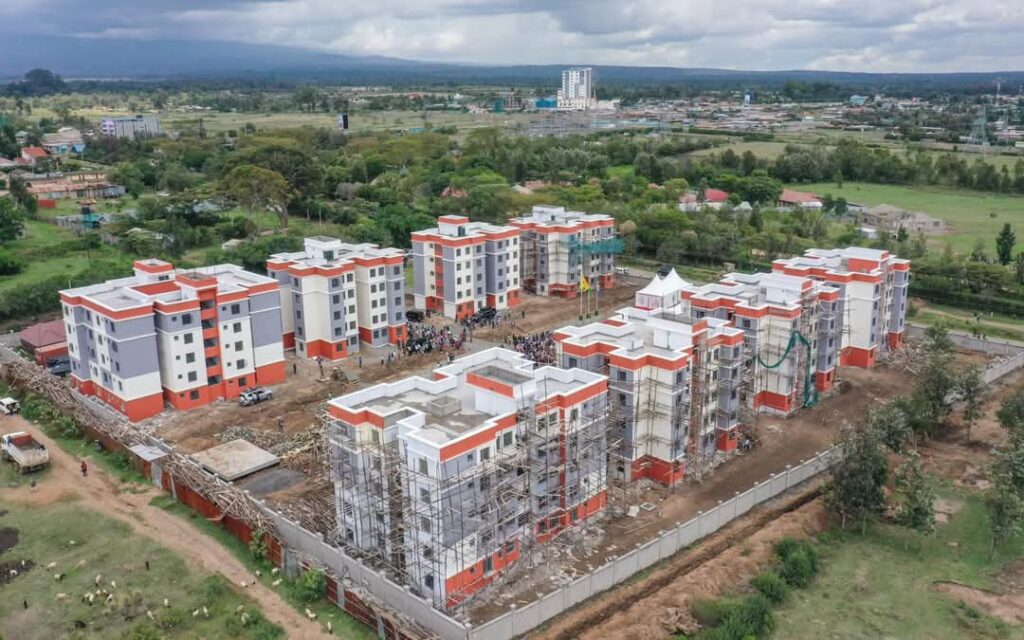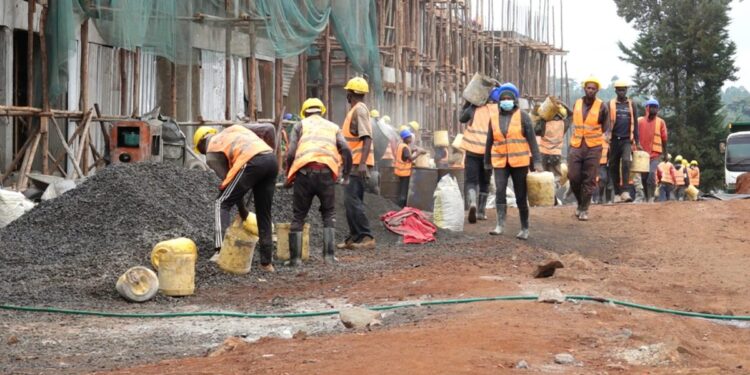Kenya’s affordable housing program, championed by President William Ruto’s administration, is not only addressing the country’s housing deficit but also creating job opportunities for hundreds of thousands of Kenyans. The initiative, a key pillar of Vision 2030 and the Big Four Agenda, aims to deliver 500,000 housing units while uplifting communities through employment and economic empowerment.
The nationwide program has become a lifeline for many unemployed youth by offering them meaningful engagement in construction-related jobs. From masons and welders to electricians and general laborers, the initiative is fostering skill development and financial independence. Many who previously struggled to find work have secured stable income streams, enabling them to support their families and improve their livelihoods.
In various counties, ongoing construction projects have opened doors for thousands of young people to gain employment. For example, with housing projects mushrooming evidently in Mt. Kenya region; Kiambu, Murang’a, Nyeri, Kirinyaga, Laikipia and other regions across the country, the housing program is alleviating unemployment by engaging local youth in different roles. This has significantly contributed to reducing idleness and deterring involvement in social vices, while also promoting economic growth at the grassroots level.
The demand for skilled and unskilled labor in these projects has created a ripple effect in the economy. Many youth are now earning a living by participating in masonry, welding, carpentry, plumbing, and site management roles. Additionally, suppliers of construction materials such as cement, steel, and timber have experienced increased business opportunities, further boosting local economies.
Construction sites across the country employ hundreds of workers daily, ensuring that many young people have access to dignified and consistent sources of income. Moreover, the projects have integrated inclusivity by ensuring opportunities for both men and women, promoting gender balance in the workforce.

Beyond direct employment, the affordable housing program has provided attachment and internship opportunities for students in technical and vocational training institutions. These students gain hands-on experience in their respective fields, enhancing their skills while also earning stipends that support their education and daily needs.
The initiative has also encouraged entrepreneurship among young people. Many have formed registered groups that enable them to bid for contracts in the construction sector, increasing their chances of financial success. This model has proven effective in empowering the youth, as they can collectively access greater opportunities than they would as individuals.
As Kenya continues rolling out affordable housing projects across multiple counties, the impact on employment and economic stability is evident. By addressing both housing and unemployment challenges, the initiative is fostering sustainable development and offering thousands of young Kenyans a pathway to financial independence. With more projects in the pipeline, the government’s commitment to transforming lives through affordable housing remains steadfast.










